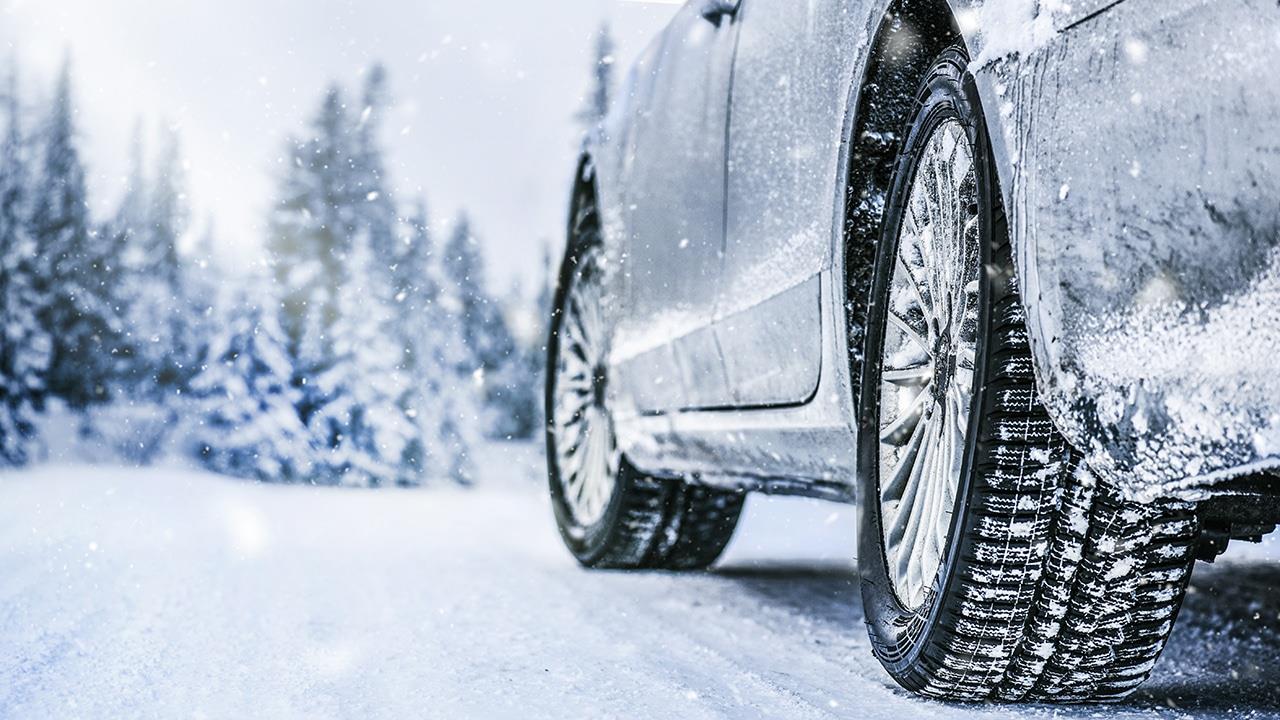- Winter tires are necessary for some drivers, but not all.
- We researched dozens of models to narrow down the top five winter tires on the market.
- We rate each winter tire based on industry testing standards, customer reviews and availability.
Deciding which tires to buy can be difficult, especially when it comes time to replace your stock tires with winter ones. In this article, we take a look at the best winter tires on the market based on traction, price, weather technology and more. We also discuss the basics of winter tires, how much they typically cost, and which drivers should buy these special tires.
If your stock tires are worn out and need to be replaced as well, you can check out our all-season buyer's guide, which lists the top 10 tires and brands on the market. To start comparing the best winter tires, visit TireRack.com.
5 best winter tires
To narrow down the five best winter tires currently available, our review team looked at availability, studded and non-studded tires, and general performance.
We included data from Tire Rack snow and ice studless winter tires to better understand how these tires perform in winter conditions. The study tested how four winter tires performed on different surfaces - freeway, highway and ring roads - in a 2014 BMW F30 328i sedan.
1. Michelin X-Ice Xi3
Michelin X-Ice Xi3 is a non-studded winter tire for all low-temperature road conditions - dry, wet, snowy, icy, slushy. In the Tire Rack winter tire study, this model performed better in wet corner tests than the other three tire models, finishing second in dry tests. It also had the second highest result in snow handling and road grip. Despite being an older model, the Michelin X-Ice Xi3 is being tested and tested. It is available in various sizes for cars, light trucks and SUVs.
Michelin tires are often expensive, and the Michelin X-Ice Xi3 is no exception. However, this Michelin model comes with a 40,000 mile tread life warranty, which will offset the cost in the long run.
2. Bridgestone Blizzack WS90
In a Tire Rack winter tire study, the Bridgestone Blizzak WS80 showed the best braking performance in dry and wet winter driving conditions. On both surfaces, this Bridgestone model stopped a full three to four feet earlier than the second-place model. Its update, the Bridgestone Blizzak WS90, only improves upon this time-honored performance.
Bridgestone uses Nano Pro-Tech ® to create their tires at the molecular level. According to the tire manufacturer, the Bridgestone Blizzak WS90 contains specially designed rubber molecules that bond more easily to silica particles, a key element in wet traction. This innovation, combined with the tread design and comfort of the Blizzak WS90, makes it one of the best winter tires in the industry.
3. Dunlop Winter Maxx WM02
Another highly rated winter tire, the Dunlop Winter Maxx WM02, was not tested in the Tire Rack Winter Tires study. However, its predecessor WM01 performed well. Both models have an asymmetric tread pattern and provide excellent traction on snow and ice.
Be aware that the model has faced some customer complaints about braking on ice and accelerating in deep snow. The tire performs well on the move, but starting and stopping can be a problem.
4. General AltiMAX Arctic
The General AltiMAX Arctic studded winter tire is available in several sizes. The tire performs well in most winter conditions, providing reliable wet and dry traction, snow traction and overall comfort. This General tire family uses a directional tread pattern to optimize both wet and dry performance.
General AltiMAX Arctic models are generally more affordable than Michelin or Bridgestone tires, and many customers report that they handle harsh winter conditions well.
5. Continental WinterContact SI
Continental Winter Contact Snow & Ice (SI) non-studded winter tire features PolarPlus technology TM to maintain rubber flexibility and grip at low temperatures. This Continental model is also the most affordable on our list of the best winter tires.
Many customer reviews mention the tire's maneuverability and excellent stopping power. However, drivers also noted that the Continental WinterContract SI performed better on wet and dry surfaces than on snow.
What is a winter tire?
Winter tires, sometimes referred to as winter tires, are designed to grip and drive safely on snow, ice, and other harsh winter conditions. They are formulated with a variety of rubber compounds for maximum flexibility even in sub-zero temperatures.
Winter tires may display a mountain snowflake with three peaks (3PMSF). According to Tire Rack, this "means that the tire meets the required snow test performance criteria to be considered suitable for heavy snow conditions." However, Tire Rack also notes that 3PMSF testing only covers "the tire's acceleration grip on medium snow" and does not include the tire's ability to brake and turn in winter conditions.
Thanks to modern technological innovations, winter tires can seamlessly transition from wet to dry roads. However, winter tires cannot be used all year round. Generally, winter tires should be put on at the end of November and removed around February or March.
Winter tires with and without studs
In recent years, studded tires have fallen by the wayside as many states have banned their use. Some states still allow studded tires, but with rubber studs rather than metal studs. While studded tires can bite into snow, they don't perform well in any other winter weather conditions and tend to damage roads.
Instead, studless winter tires use a deeper tread pattern, sharper tire edges, and flexible rubber materials to handle snow and ice.
Do you need winter tires?
Drivers who regularly drive on snowy, icy or cold road conditions should consider purchasing winter tires. As the name suggests, winter tires are not just for snow. Often the material of non-winter tires cannot withstand lower temperatures.
Drivers who do not remove their all-season tires during the winter months may experience a so-called glass temperature transition. Rubber usually starts behaving differently around 45 degrees Fahrenheit and below. Cold rubber, instead of its usual soft and flexible structure, begins to harden and crack like glass. This condition can seriously affect tire grip and overall performance.
So, if you live in an area where temperatures regularly drop below 45 degrees, winter tires are likely to be a good investment.
Winter tires are also critical to road safety. Incorrect traction and tire stiffness can lead to serious accidents in inclement weather. According to the Federal Highway Administration, about 21% of annual car accidents are caused by bad weather.
How much do winter tires cost?
According to Edmunds.com, winter tires cost anywhere from $150 to nearly $190 per tyre. While it can be more expensive than many other types of tires, keep in mind that you can keep and use the same set of winter tires for two to three years, so you don't have to pay to replace them every winter.
Here's how much each of the best winter tires on Tire Rack costs:
- Michelin X-Ice Xi3: $124.41 (215/60R16)
- Bridgestone Blizzak WS80: $149.69 (215/60R16)
- Dunlop Winter Maxx WM02: $124.99 (225/60R17)
- Tire General AltiMAX Arctic: $113.99 (215/65R17)
- Continental WinterContact SI: $105.11 (205/50R17).
As with general purpose tyres, the cost of winter tires depends on their size, manufacturer, and the vehicle you drive.
Our Top Tire Recommendations
Tires are often underestimated when driving. Quality tires can change your car's handling, reduce fuel consumption, and improve its overall safety performance. Before buying a new set of tires, it's best to compare several different tire models. We recommend Michelin and Goodyear tires.
Michelin: the best tires overall
Michelin makes not only excellent winter tires, but highly acclaimed models in almost every tire category. In our 2021 round of the best tires in the industry, we determined that Michelin has the best tires on the market. While Michelin tires tend to be more expensive, their quality and performance make them a worthwhile investment.
Compare Michelin tire models at TireRack.com.
Goodyear: the best for durability
Goodyear, another top-tier tire manufacturer, boasts some of the most durable tires in the industry, especially when it comes to all-terrain and mud models. Although Goodyear tires are higher priced, the company's rigorous testing standards should reassure most drivers that Goodyear's quality is backed by the industry and customers.
Compare Goodyear tire models at TireRack.com.






